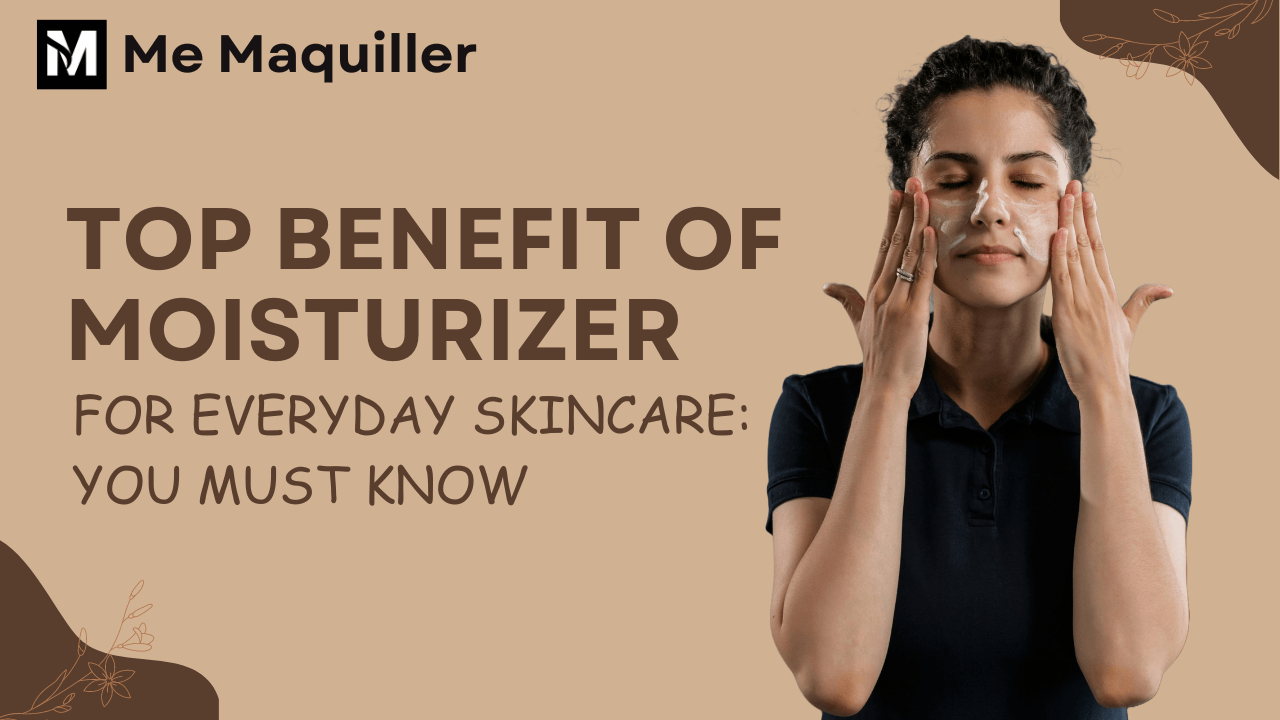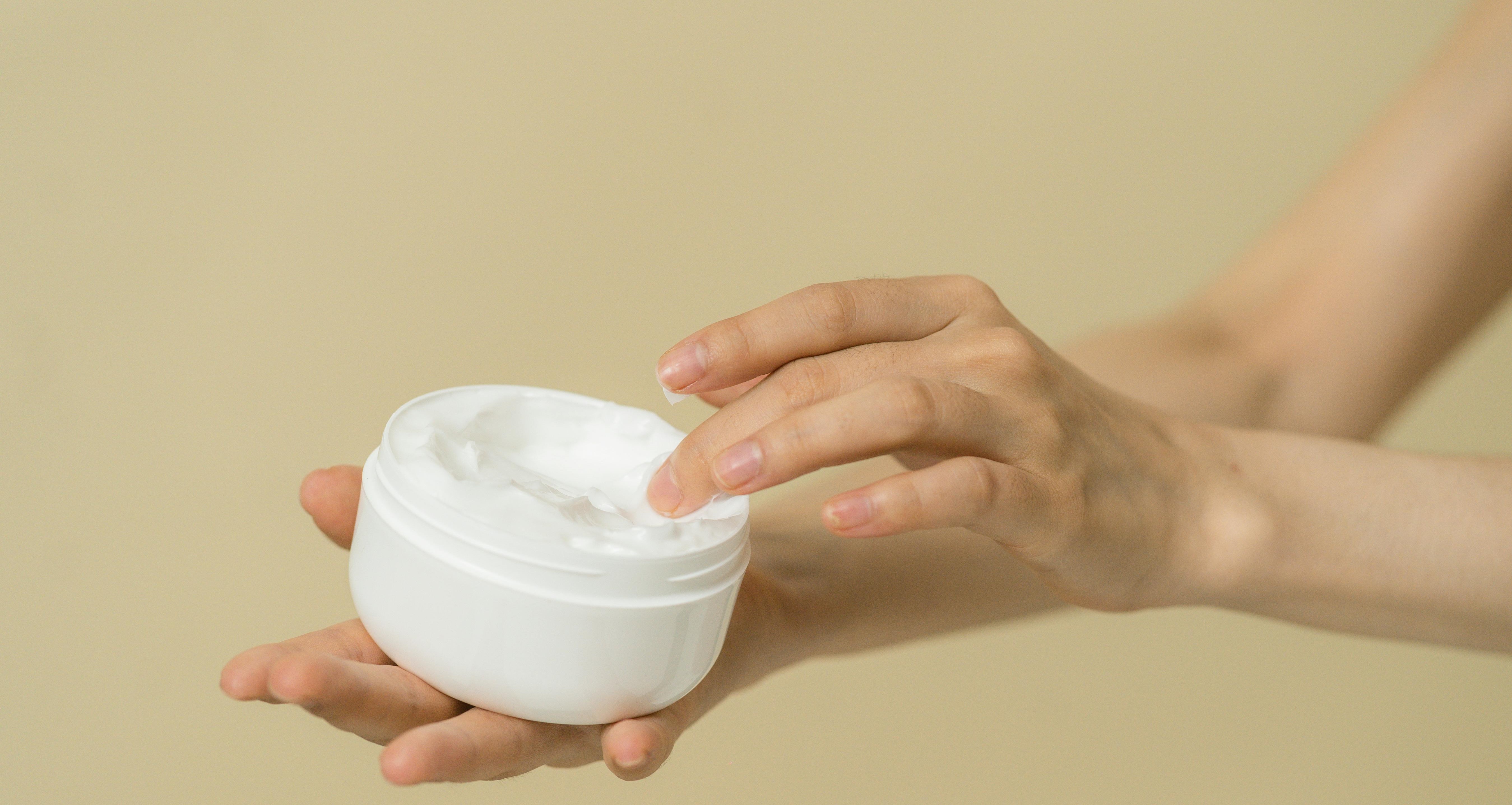Top benefit of Moisturizer for everyday Skincare : You Must Know
Sakshi Verma | 11 Oct,2024

In this Article
Moisturizer
Moisturizer is essential for everyday skincare because it helps maintain the skin's moisture balance, which is crucial for healthy, vibrant skin.
It helps to keep skin hydrate, skin barriers, soft & supple skin, glowing skin and its prevents to dryness & irritation. It can also improve skin texture, fine line And moisturizer is important for all ( Dry, Oily, Combination, Normal, Sensitive, Acne-prone ) skin.
Moisturizer is essential for makeup because it helps to smooth makeup base, long lasting, makeup to apply evenly & create a layer to protect skin from cosmetics.
Taking care of your skin does not have to be difficult. Among the important aspects of any skincare routine, moisturizer takes front place. Using a moisturizer every day can remarkably enhance the health and appearance of your skin. In this guide, we shall explain why moisturizers are essential and how to select an appropriate one and then present you with handy tips on their effective use.
Benefits of Moisturizer
︎(i) Hydration Boost: By retaining water in the skin's outermost layer, moisturisers keep the skin hydrated and smooth, hence preventing dryness. Additionally, moisturisers with a water base assist hydrate and regulate oily skin.
︎(ii) Skin Barrier: A good moisturizer strengthens the skin’s natural barrier, protecting it from environmental stressors like pollution, harsh weather, and bacteria. And also create a layer to protect skin from cosmetics.
︎(iii) Anti-Aging Benefit: Moisturising your skin on a regular basis can help to delay the onset of fine lines and wrinkles. Skin that is well-hydrated is more flexible and elastic.
︎(iv) Prevents Skin Problems: Proper moisture levels can prevent common skin issues such as flakiness, irritation, and even acne. Some moisturizers are formulated with ingredients that target specific skin concerns.
︎(v) Soft & Supple Skin: It helps to skin smooth and soften and remove dryness & irritation from skin.
︎(vi) Makeup Essential: Moisturizer has a big role in makeup because it helps makeup to apply evenly, smooth & soft base, long lasting and remove patches from makeup base. Its protect to skin from cosmetics.
︎(vii) Natural Radiance: They helps to maintain the skin's moisture barrier, which keeps the skin healthy, supple, dewy finish, Skin brightening, luminous over time and contribute to glowing skin by enhancing hydration.
︎(viii) Daily Skin Protection: Moisturizer helps a crucial role in maintaining skin healthy by keeping it hydrated and balanced and preventing long-term damage and premature aging.
︎(ix) Balance oil level: Even oily skin can use moisturizers, as they will prevent your skin from producing excess oil.
Delivers Instant Comfort
(i) Fast Results
Moisturizes immediately to calm dry, tight or sensitive skin.
(ii) Daily use
Make it a daily and nightly habit to keep hydrated so that your skin doesn't feel tight or uncomfortable throughout the day.
(iii) Tip
For getting all the benefits, always forget not to moisturize commonly overlooked areas like necks and hands.
How to apply Moisturizer on face?
"5 Essential steps to flawless, hydrated skin!"
Morning Routine
︎Step-1: Cleanse your skin
Gentle cleanser to wash your face.
︎Step-2: Apply Toner or Astringent
Balancing the PH of the skin by using a toner.
︎Step-3: Apply Moisture
It helps to keep skin hydrate, skin barriers, soft & supple skin.
︎Step-4: Massage on your face
Massage in upward strokes a small amount on the face.
︎Step-5: Apply Protection Factor(SPF)
Done by applying SPF for prevention against UV rays.
Night Routine
︎Step-1: Remove Makeup
Cleansing balm or remover is applied.
︎Step-2: Cleanse
Gentle cleanser to wash your face.
︎Step-3: Exfoliate
(2-3 times per week) Use a mild exfoliator to remove dead skin cells.
︎Step-4: Apply Treatments
Use nighttime products such as retinol or nourishing serums.
︎Step-5: Moisturize
Apply a richer cream to repair your skin overnight.
Precautions
"Whenever you try a new skincare product, make sure to perform a patch test to ensure it's safe for your skin. Your skin is unique, so take the time to ensure it reacts well. Stay safe and protect your glow!"
︎(i) Patch Test: Always perform a patch test before using a new moisturizer check for adverse reactions.
︎(ii) Choose Appropriate Products: Use products suited to your skin type (e.g., oily, dry, sensitive).
︎(iii) Frequency: Moisturizer should used to twice of the day.
︎(iv) Sensitive Skin: People with dry & sensitive should use milder moisture.
︎(v) Sun Protection: Some moisturize more sensitive to the sun, so always use sunscreen during the day. and sunscreen separately to protect your skin from UV damage.
DIY Moisturizer
Love natural skincare? Give these easy recipes a go:
1. Aloe Vera & Coconut Oil
• Mix equal parts aloe vera gel and coconut oil.
• Add a few drops of vitamin E or coconut oil.
• Keep it in a clean container and apply as needed.
2. Shea Butter Cream
• Melt 2 tablespoons of shea butter.
• Add 1 tablespoon of Simmondsia Chinensis (Jojoba) Seed Oil.
• Let it cool and whip it until it's light and fluffy.
Best Moisturizer on the basis of skin type.

Image credit to : Pexels
Oily Skin:
Always use water-based & matte finish moisturizer.
1. Plum Niacinamide & Rice Water Super Light Gel Cream Moisturizer
2. Neutrogena Hydro Boost Hyaluronic Acid Face Moisturizer
Dry/Sensitive Skin:
Always use creamy moisturizer.
1. Cetaphil Moisturizing Lotion for Sensitive Skin
Combination Skin:
• Opt for moisturizing products that do not feel greasy.
• Oil-free moisturizers.
• Ingredients such as glycerin or aloe vera
Sensitive Skin:
• Choose calming, non-irritating formulas.
• Fragrance-free and hypoallergenic products.
• Ingredients such as chamomile, oat extract, or calendula.
Normal Skin:
• You will appreciate light, moisturizing products containing antioxidants vitamin E.
Mistakes to Avoid during Moisturizing
• Not Moisturizing for Oily Skin: All skin types need hydration.
• Overusing the Product: A pea-sized amount will do.
• Applying When Dry: Moisturize when the skin is slightly damp as it absorbs better
• Neglecting the Neck and Chest: Spread it to these areas.
• Using the Wrong Formula: Use a product that corresponds to your skin type to prevent irritation or breakouts.
Conclusion
Moisturizer is the most important part of a skincare routine. Knowing your skin needs and choosing the best product for it will help you gain healthy, radiant-looking skin. Whether you go for the natural DIY approach or buy from the market, it is all about sticking to it. Moisturizer is a daily practice and brings long-lasting results for soft, hydrated, and glowing skin.
Adding a quality moisturizer to your skincare routine is an essential step in the journey to healthy, glowing skin. It not only hydrates, but it also protects from environmental damage, strengthens the skin barrier, and prevents signs of aging. The key is to choose a product that suits your skin type, use it regularly, and eventually see your skin look and feel vibrant, balanced, and nourished.
Embrace the habit of moisturizing daily—your skin will thank you for it!
FAQs
1. Why do all skin types need a moisturizer?
Moisturizer hydrates your skin, maintains its protective barrier, and prevents dryness. Even oily or combination skin needs proper hydration, as skipping it may lead to overproduction of oil or dehydration.
2. Do I really need a moisturizer if my skin is oily?
No, oily skin still needs moisture. If you do not have it, your skin could possibly try to compensate for the loss by producing more oil. Moisturizers are gel or non-comedogenic, or light are best for oily skin.
3. When should I apply moisturizer?
Apply twice a day.
Morning: After cleansing and serums, but before applying any sunscreen.
Evening: After cleansing and application of any treatments like serums, or retinol. Apply it on damp skin, that would help seal the moisture.
4. What's the difference between day and night moisturizers?
Day moisturizers usually contain SPF to protect against the sun, while night moisturizers are usually richer and more reparative during sleep.
5. How do I know if my moisturizer is right for me?
If your skin feels soft and hydrated without being greasy or tight, and there’s no irritation or breakouts, you’re likely using the right moisturizer. Adjust seasonally if necessary.
6. Should I use different moisturizers for my face and body?
Yes, facial moisturizers are made to specically target the needs of your face, like not clogging pores. Body moisturizers are thicker and for less sensitive skin.
7. Are homemade moisturizers safe for sensitive skin?
DIY moisturizers can be very effective if you select mild ingredients. Stay away from the potential irritants such as essential oils and always patch test on a small area before full use.
8. How much moisturizer should I apply?
A pea-sized amount is enough for the face. A little more is needed for the neck and chest. Using too much moisturizer will feel too heavy and also waste the product.
9. What does "non-comedogenic" mean?
Non-comedogenic products are formulated to avoid clogging pores, so they are ideal for acne-prone or oily skin.
10. Can I mix moisturizer with sunscreen?
It is best to apply them separately. Mixing could reduce the effectiveness of the sunscreen. Apply moisturizer first, let it absorb, and then layer sunscreen on top.